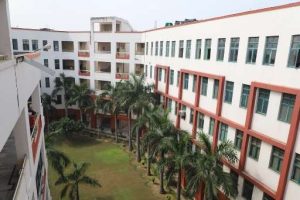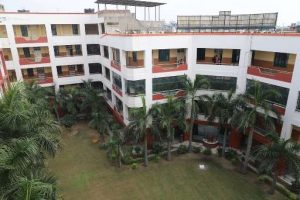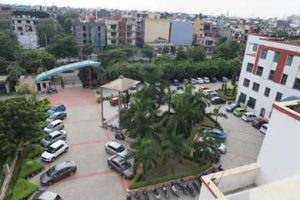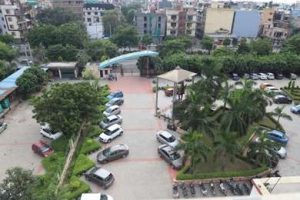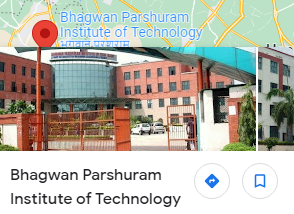Digital Logic and Computer Design Lab
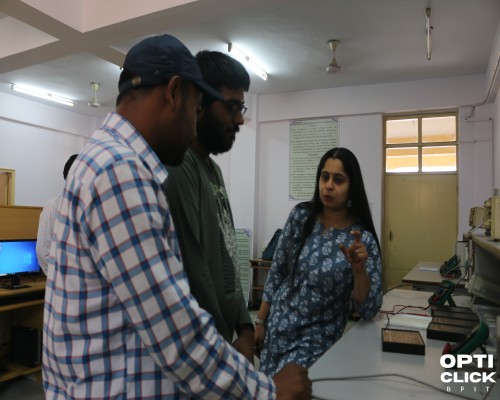
A Digital Logic and Computer Design Lab Laboratory of the ECE Department lays the strong foundation for understanding, designing and implementing digital circuits starting from a gate level to a simple digital system, also it helps the students to develop their knowledge ofprocessor (8085) architecture and the programming skills. This helps the students to convert the basic ideas into an actual working prototype. The lab provides facilities for software simulation using the state-of-the-art tool and hardware implementation on digital trainer kit.
Analog Electronics Lab
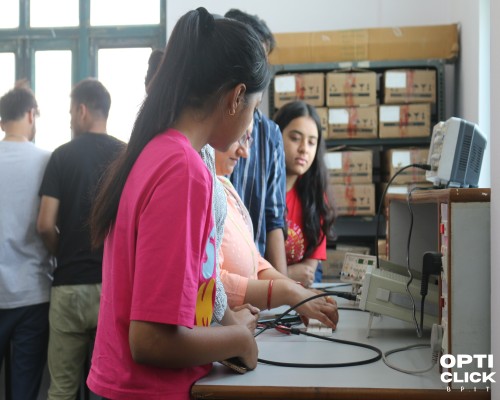
The aim of the lab is to equip students with proficiency in managing diverse analog electronics circuits, providing a foundational grasp of these circuits. It houses various instruments designed to enhance students’ practical skills. Currently, it serves undergraduate students for their laboratory experiments, particularly in analog electronics circuits, allowing them to apply what they have learned in class through various related experiments.
Signals and Systems lab
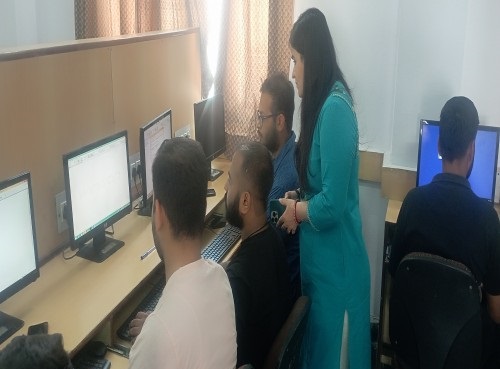
The Signals and Systems lab aims at practical experience with the generation and simulation of basic signals, using standardized environments such as MATLAB. Experiments cover fundamental concepts of basic operations on signals, generation of various signals and sequences, and various Transforms including Fourier Transform, Z-transform, and Laplace Transform. The objective of this lab is to provide students with a computational platform so that they can critically analyze the behavior of various signals and systems i.e. LTI systems.
Analog Communication & Digital Communication Lab
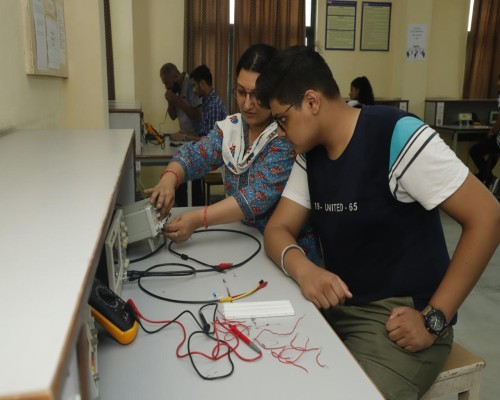
The Analog & Digital Communication Lab is an educational facility equipped with various tools, instruments and Campus Access for MATLAB with various Toolboxes to facilitate hands-on learning experiences in the field of communication engineering. In this lab, students can explore the principles and techniques behind both Analog and Digital Communication Systems. The lab typically includes equipment such as signal generators, oscilloscopes, modulators, demodulators, and various types of communication hardware. Students engage in practical experiments to understand concepts such as modulation, demodulation, encoding, decoding, noise analysis, Amplitude Modulation (AM), Frequency Modulation (FM), Pulse Modulation Techniques, Digital Modulation schemes like Phase Shift Keying (PSK) and Quadrature Amplitude Modulation (QAM).
Microprocessors & Microcontrollers Lab
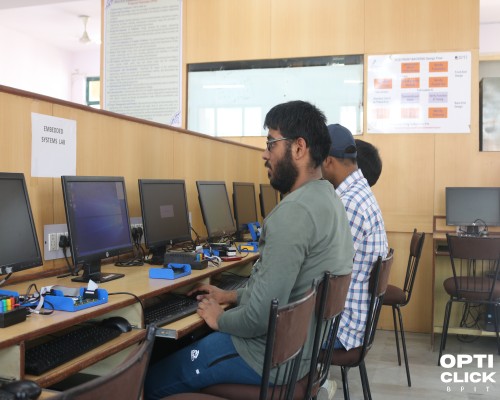
The primary focus of Microprocessor and Microcontroller laboratory is to enable the students to program, simulate using Jubin simulator,8086 emulator, KIEL IDE, MPLAB IDE and test the 8085, 8086, 8051, PIC and ARM processor based kits along with their interfaces. Students get clear exposure of the theoretical aspect of the subject through laboratory experimental setup on various topics.
Embedded System Design Lab
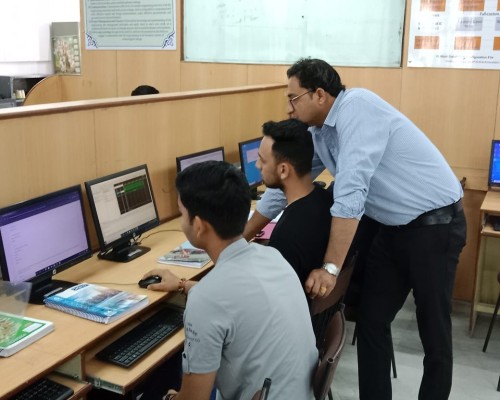
The Embedded System Lab is based on 8051, PIC and Arm advanced microcontrollers. The students can learn the programming and interfacing of real-time systems used in domestic and commercial applications. In this lab Kiel and MPLab software’s are used for programming. Various interfacing hardware modules are available for practical applications like: Stepper motor, Seven-Segment LED display etc.
Optical Communication System & Network Lab
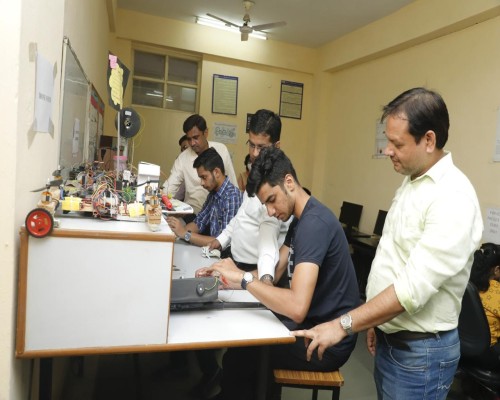
The Optical Communication Laboratory is a setup to analyze and understand the concepts studied in the Optical Communication Theory Course. The lab is equipped with Fiber Optic Trainer Kits And Modules to enable the study of components of an optical communication system. The students perform experiments to study the characteristics of optical sources and detectors (LED, PIN & APD), different losses in optical link and different modulation techniques.
Transmission Lines, Waveguides & Antenna Design Lab
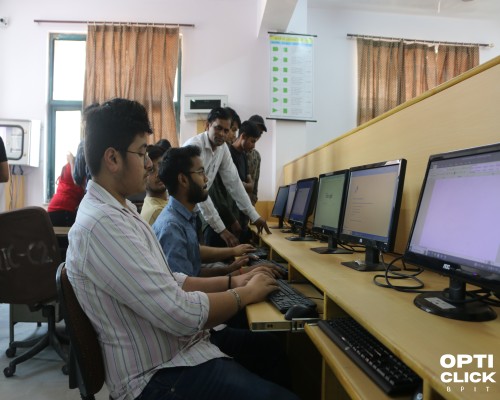
In the Transmission Lines, Waveguide, and Antenna Design Lab, students understand the behavior of electromagnetic waves in transmission lines to the intricacies of waveguide design and antenna optimization. This lab provides a comprehensive exploration of crucial components in signal transmission and reception. Students will be able to understand concepts of waveguides using Microwave test bench and other hardware. Students will be able to understand the basic properties of antenna and transmission lines and will be able to design and analyze the basic parameters of rectangular and circular microstrip patch antenna using Ansys HFSS.
Microelectronics & VHDL Programming Lab
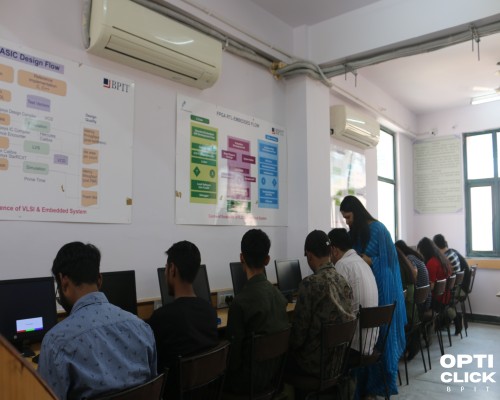
The Microelectronics and VHDL programming Laboratory using Tanner Tool introduces students with the basic semiconductor concepts and hands-on sessions, including schematic and layout design using Tanner, S-Edit, L-Edit and Xilinx. VHDL programming labs involve coding the digital circuits and explore further simulation capabilities for FPGA implementations. The design-based experiments encourage the students for practical application and innovations. Assessment includes quizzes, assignments, and project presentations. Active participation and problem-solving are emphasized throughout and the aim is to equip students with practical skills in microelectronics design and VHDL programming using Xilinx ISE.�
Digital Signal Processing Lab
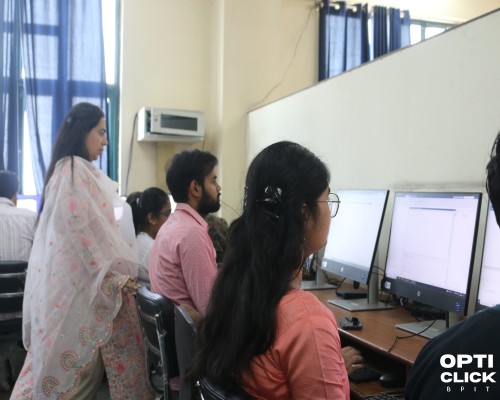
The Digital Signal Processing Lab provides the practical exposure and in depth knowledge of various digital signal processing techniques taught in the lecture during the course. The lab aims to impart the knowledge to learn and to implement the concept of DFT FFT algorithms, and design of digital filters using different approximations, DSP processor and architecture.
DCN & ACN Lab
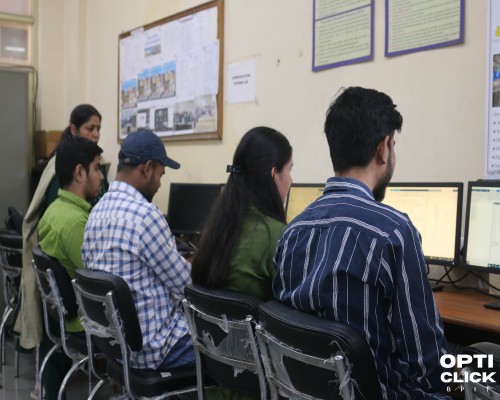
The objective of lab is to introduce the fundamental concepts on data communication and the design, deployment, and management of computer network. The lab experiments are designed to improve the abilities of students by giving hands on experience through NS-3 and Cisco Packet Tracer.
Consumer Electronics, Radio & TV Engineering Lab
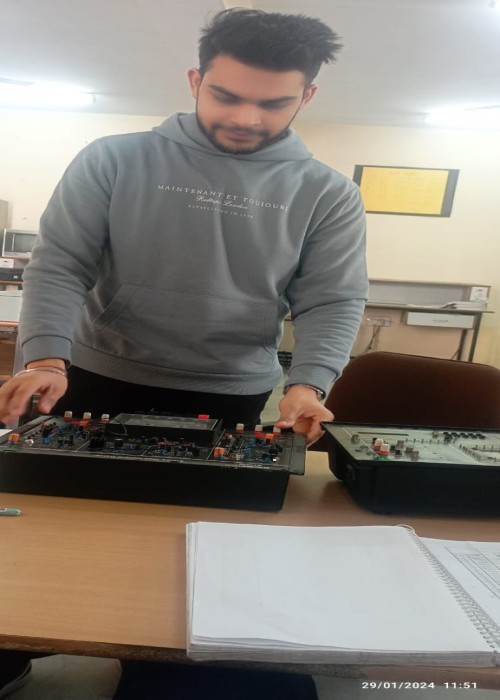
This lab gives a thorough understanding of diverse electronic audio and video equipment and systems. Additionally, this course will teach the students about fundamental concepts, block diagrams, and characteristics of consumer electronics products and devices, such as CD players, audio systems, monochrome TV, colour TV, VCR, and additional devices including washing machines, microwave ovens, and digital watches among others. It will ultimately help them develop their methodical problem-solving, assembly, and fault-diagnosing skills.
Satellite & Antenna Lab
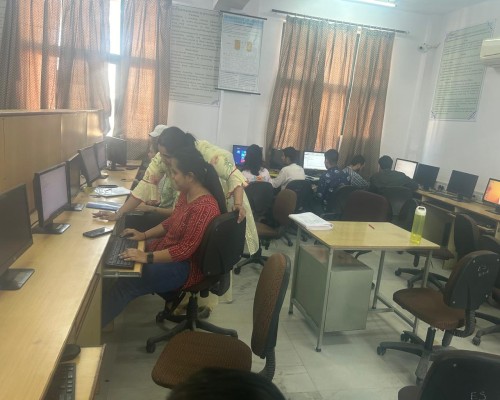
The Satellite and Antenna Lab provides practical exposure and in depth knowledge to setup active and passive satellite links, transmission and reception of voice, data and video signals through satellite communication. The lab aims to impart the knowledge to plot radiation pattern of various types of antenna and study various parameters of an antenna.

